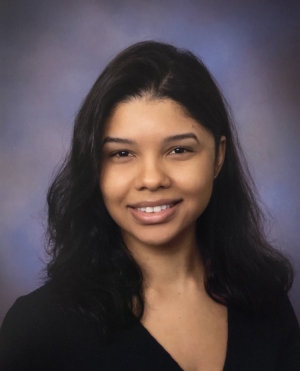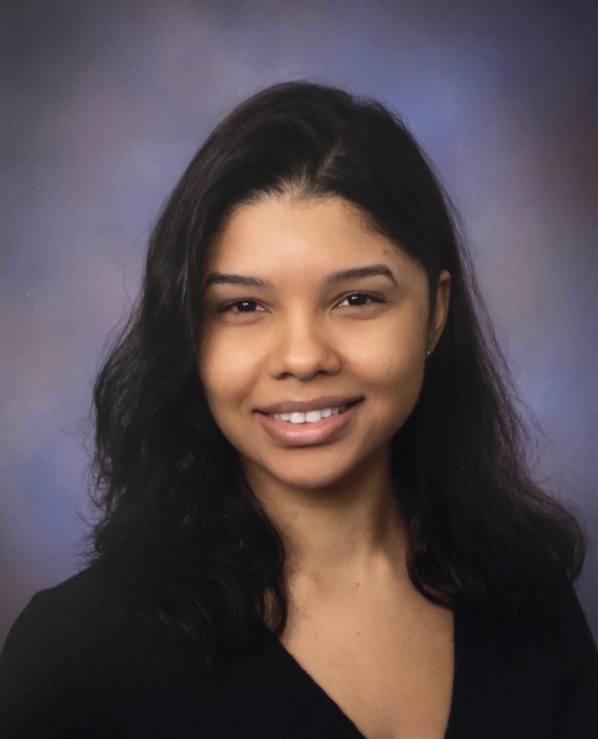Patricia Ferreira ’21 received a masters in Experimental Psychology in May and contributed to research in the Dr. Wiley F. Smith Department of Psychology during her time as a student. Now that she has graduated, Ferreira is continuing her research related to legal psychology with Iowa State University.
Can you tell me a little about yourself - your hometown, why you chose to come to Appalachian and your major?
I am originally from Nashua, N.H. and completed my undergraduate degree at the University of Massachusetts Lowell. I majored in psychology and criminal justice. Broadly speaking, my research focuses on how people behave and make decisions in the criminal justice system.
I started doing research during my undergraduate years. I worked in a legal psychology research lab and I really fell in love with it. I then decided to attend Appalachian to complete my masters because of the research that my current mentor was conducting, Dr. Twila Wingrove. She is a legal psychologist.
At the time, when I was applying to Appalachian’s masters program, I was looking for people who were doing research that lined up with my own research interests. I have followed this method again and I will be off to Iowa State University to get my Ph.D., and will continue working on legal psychology research.
Can you describe your thesis project while at Appalachian?
We were specifically looking at juror’s perceptions of expert testimony provided by Sexual Assault Nurse Examiners (SANEs) who specialize in the care of sexually abused children and adults. There has been a lot of field research evaluating the efficacy of existing SANE programs. Typically, this research has shown that when SANEs are involved in sexual abuse cases and trials, there is a greater chance of a conviction or a guilty plea, and that is typically the outcome that we want.
With my master's thesis in particular, we wanted to add to the existing literature by looking at two factors about SANEs as professionals that help explain part of their impact in sexual abuse trials. We generally know that SANEs are perceived highly by jurors, but with my thesis, we really wanted to understand why people perceive these professionals to be as effective or why they perceive them as positively as they do.
We looked at the impact of two variables, the content of the SANE’s training and the extent of their work experience. We found support for our hypothesis that SANEs are perceived positively by jurors because they receive more intensive training than other types of medical professionals.
We also found in cases where a SANE has a higher level of work experience, that this variable contributes to jurors’ positive perceptions of them, as we had predicted.
It was fun to find support for a few of my novel and principal hypotheses. We are currently preparing to submit this work for publication.
How did you conduct your research?
With our research, our approach is typically to conduct experimental studies. That means we construct and present legal scenarios in the form of trial summaries or police reports that closely resemble reality. Regarding trial summaries, for instance, the sequence of information participants read is the same sequence that would occur in an actual trial. There are opening statements, testimony from witnesses on the prosecution and defense’s side, respectively. Following these, are closing arguments and jury instructions given by the judge.
With these scenarios, typically we recruit participants, whether it’s a student sample or a community sample to read this information online and answer a number of questions related to the study. Other questions relate to their general attitudes or impressions of whatever might be of interest to a particular study. We then collect all of that data over a period of time and analyze it.
Can you tell me about the follow-up study you are designing related to your thesis at Appalachian?
It is a follow up of sorts, in the sense that we are still looking at jurors' perceptions of SANE testimony. However, with this particular study, we are interested in how juror’s perceptions of SANEs might vary as a function of their gender, so we are manipulating the SANE’s gender. Participants will either read about a trial summary that contains testimony from a female SANE or a male SANE.
Another component that we are looking at is how jurors' perceptions in these trials might vary depending on the complainant's gender. We are also presenting a female complainant and a male complainant. What we're particularly interested in this case is jurors' perceptions of the interaction between the SANE’s gender and the complainant's gender. For instance, among other things, we want to know if their perceptions in cases where there is a female SANE and a female complainant differs from their perceptions in cases where there is a female SANE and a male complainant.
What was your experience working on research with faculty at Appalachian? Did anyone have a positive impact on your experience?
I worked closely - and continue to work - with Dr. Twila Wingrove since she was my official research mentor in the program. Twila has absolutely had a huge impact. During my time in the program and beyond, she has helped me develop and further hone my research skills. She's played an unparalleled role in my development as a researcher, as a student and as a person.
What are you looking forward to when attending Iowa State University?
I will still be doing legal psychology research moving forward, but I am looking forward to researching some newer topics that I haven't researched before. My Ph.D. mentors research false confessions and forensic expert decision making, so I will be exploring those topics as well.
What advice would you give to an incoming student at Appalachian? What was most valuable to you about your experience?
Perseverance is key. There will definitely be frustrating and uncomfortable times, but ultimately, that's all part of the learning process. Essentially, the learning process isn't always comfortable, but it's always rewarding when you're tenacious.
I would say that being honest and authentic with yourself and with others is also key. I think that generally there tends to be this perceived expectation or pressure that you should know everything right away, but always ask questions and don't be afraid to admit when you haven't understood something.
###
About the Dr. Wiley F. Smith Department of Psychology
Appalachian’s Dr. Wiley F. Smith Department of Psychology serves more than 1,000 undergraduate majors seeking the Bachelor of Arts or Bachelor of Science degree in psychology, as well as 80 graduate students in three master’s programs (experimental psychology, school psychology, and industrial-organizational psychology and human resource management) and the clinical psychology (Psy.D.) doctoral program. Learn more at https://psych.appstate.edu.
By Sophia Woodall
July 23, 2021
BOONE, N.C.

